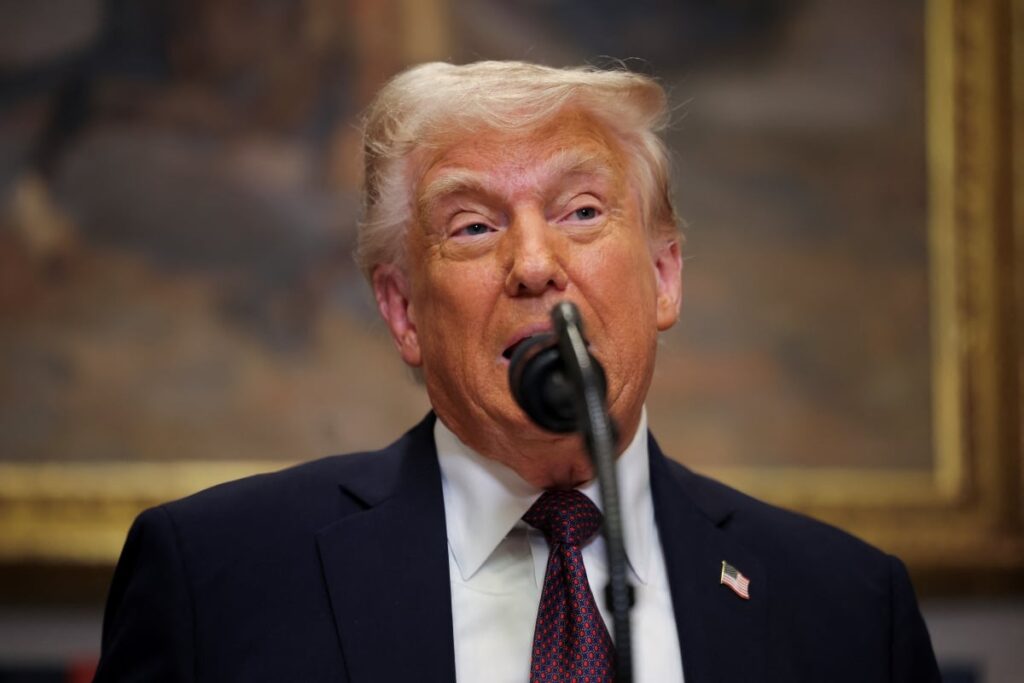ANALYSIS: U.S. announces 25 per cent additional tariffs on autos

Glacier FarmMedia—It was entirely predictable.
On Wednesday the fiasco surrounding the disclosure of details on the planned Houthi attack to the editor of The Atlantic continued to dominate the U.S. news cycle. To counter uncomfortable news like that, the trend we’ve seen from the U.S. administration is to make some other announcement that draws attention away from the current scandal in hope of downplaying it.
Former presidential advisor Steve Bannon once described it as a way to “flood the (news) zone” and provide a distraction.
Read Also

Trump administration tells oil and biofuels groups to hash out new biofuel policy
U.S. President Donald Trump’s administration has asked oil and biofuels producers to hash out a deal on the next phase of the nation’s biofuels policy to avoid the kind of political clashes that marked his first term.
Turning to a new tariff announcement seemed almost certain to be the fallback plan as the Atlantic story gathered momentum — and it was.
The tariff announcement came in a rambling and at times absurd press conference by the U.S president. Donald Trump veered from announcing an additional 25 per cent tariff on foreign-made cars to declaring Germany “almost went bankrupt” from incorporating green energy. He then went on to lament dead whales washing up on shores somewhere in the world.
It was unclear after the announcement how the tariff would be applied to the integrated North American auto sector, which builds sub-assemblies for autos in all three countries before they’re added to finished vehicles.
“Fifty per cent of the parts in a (Canadian built) vehicle are American,” said Ontario Premier Doug Ford. “I find it hard to believe they can dissect every part in an automobile by April 2.”
Despite earlier promises given in a meeting a couple of weeks ago between Ontario and federal government officials with U.S. Commerce Secretary Howard Lutnick, in which the U.S. agreed there would be no surprise announcements, there was no previous warning given to Canadian officials ahead of today’s announcement, according to Ford.
“We thought we’d be informed. The words ‘no surprises’ came up in the meeting and sure enough, well, here’s the surprise. This is the tough part of negotiating with President Trump through Secretary Lutnick, you don’t know what’s coming day to day.”
“This is a direct attack, to be clear,” said Prime Minister Mark Carney. “We will defend our workers. We will defend our workers, and we will defend our country together.”
The U.S. president boasted during the press conference that new manufacturing plants are suddenly being planned and built in the U.S. at a rapid rate, which in turn would create many new construction and auto worker jobs.
“I don’t know how he thinks it’s going to be better,” said Ford. “You can’t flick on a switch and build an auto plant overnight.”
“We do not yet have the executive order, so there are different variants of the 25 per cent announcement,” Carney said. “One would be it’s only the part component of a car. Another would be it’s not the entire vehicle.
“We await the executive order for that clarity. It’s entirely unjustified and inconsistent with CUSMA,” he said, referring to the Canada-U.S.-Mexico Agreement, which came into force during the Trump administration in 2020, replacing the former North American Free Trade Agreement (NAFTA).
“We buy as many cars from the U.S. as we sell down there,” added Ford. “I can’t for the life of me understand how he thinks Americans aren’t going to feel the pain. I’ll encourage the prime minister to target American cars as well. That’s what we’re going to focus on.
“Manufacturers here have been stockpiling parts. Once that supply runs out you’ll see assembly lines shut down in both countries.”
Source: Farmtario.com


